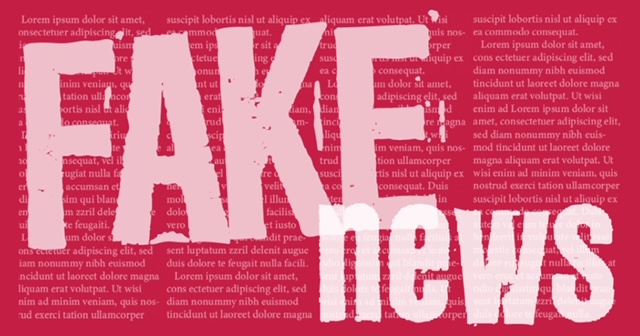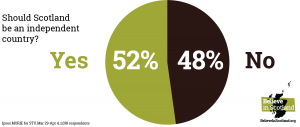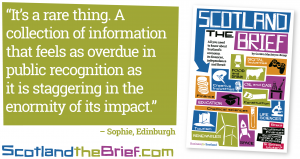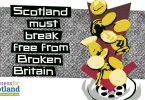As the momentum for Scottish independence increases in the run-up to the May Scottish elections Unionist hysteria and fake news are looking increasingly desperate as they face the prospect of defeat in the second indyref.
Two recent articles have taken scaremongering to new heights. John Lloyd, a Financial Times contributing editor, has written in that newspaper claiming that Scottish businesses fear suffering dire consequences for speaking out against independence, without offering a shred of evidence to support the claim.
And an article by Professor David Blake in Briefings for Britain is yet another dire prediction to rehash old figures and arguments in a vain attempt to convince us that Scotland’s economy could not sustain an independent country.
John Lloyd’s article is headlined ‘’The push for independence is turning off Scots business’’ but any examples used to back up this groundless assertion are of course provided anonymously.
Even the most cursory reading of some of Mr Lloyd’s claims show them to be laughable. He writes: ‘’Most business people have been sceptical [about independence], although quietly so. To take up arms against nationalism and, by opposing, hope to diminish it has been generally seen as ill-advised.
”Some are in retail businesses and feel a need to avoid giving offence. Others rely on government contracts. Those in the media can fear being thought biased. All these factors deter critics of independence from speaking out.’’
As someone who has spent all his working life in the media I have to say the notion that journalists fear being ‘’thought biased’’ is patently ridiculous
There are no direct quotes – anonymous or otherwise – to back up his claims.
As someone who has spent all his working life in the media I have to say the notion that journalists fear being ‘’thought biased’’ is patently ridiculous. In the 2014 referendum one newspaper – the Sunday Herald, which I edited at the time – supported independence. The rest either opposed it strenuously or sat on the fence.
Matters have not changed much since. Today the National and Sunday National are the only pro-independence titles. If there is one thing Scotland is not short of it is pro-union titles and columnists. They are hardly cowed into submission.
That suggests to me that Mr Lloyd’s other dark claims of the dire consequences of publicly supporting independence can be taken with more than a few bucketloads of salt.
The suggestion that a ‘’forceful tweeter against the Scottish National Party lost a board membership of a charity due to feared loss of government support’’ again features no names.
Another reference to a ‘’financier with a large farm’’ who claims to be under ‘’constant’’ investigation by various authorities while a ‘’nationalist’’ neighbour attracts no attention is also anonymous.
I’d suggest if you are going to write an article suggesting that businesses are under such pressure to keep quiet about their fears over independence you really have a responsibility to give some real examples
Mr Lloyd writes: ‘’If true, these episodes are enough to discourage most people from further complaint’’. ‘’If true’’ is a pretty major caveat.
To be honest, I’d suggest if you are going to write an article suggesting that businesses are under such pressure to keep quiet about their fears over independence you really have a responsibility to give some real examples and not fall back on the suggestion that those involved are too scared to speak out.
I don’t know about you but I can think of plenty of examples of union supporters who somehow find the ’courage’ to express opposition to independence and plenty of newspapers willing to publish their views on the front page. Yet recent opinion polls have still shown majority support for independence.
Professor David Blake’s article is very long and packed full of figures which he claims show the dire economic consequences of independence. You’ll be familiar with most of the phoney arguments by now: Scotland receives more money from Westminster than it receives; Scottish public spending is so high we couldn’t afford to pay for it ourselves; Scotland has a ‘’huge’’ budget deficit because of big spend-items such as the 4% increase offered to NHS staff, free prescriptions and university tuition fees.
None of these claims is true and the figures used are generally accepted as saying nothing about the finances of an independent Scotland. Rather than refute every claim here I’d simply refer you to Business for Scotland’s excellent book Scotland the Brief which puts Scotland’s finances in their proper context and shows conclusively that we would thrive as an independent country.
And indeed the very existence and success of Business for Scotland stands as proof of the complete inaccuracy of the headline on John Llyod’s article. Far from ‘’turning off’’ Scots business an increasing number of firms are realising the real and significant economic advantages independence would bring.










